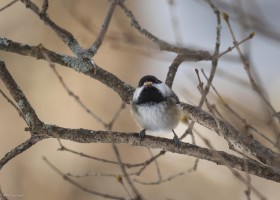
Outdoor Radio: Being a Bird Brain May Not Be Bad
This month on Outdoor Radio, biologists Sara Zahendra and Kent McFarland watch chickadees at a bird feeder. They explain the unique adaptation that allows these birds to remember where they hide all those seeds.
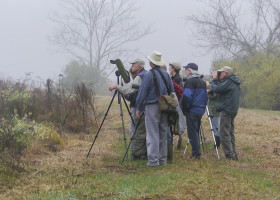
Make Vermont eBird your New Year’s Resolution for 2016
Since its inception 14 years ago, Vermont eBird has grown in leaps and bounds thanks to the dedication of Vermont bird watchers. We also hear from many who say that they want to submit to Vermont eBird more often or that they “keep meaning to get started” but have yet to “take the plunge.” Together, let’s make 2016 the year without regret!
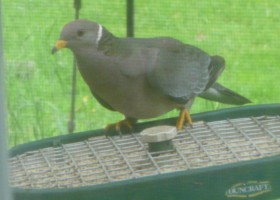
Two New Bird Species Found in Vermont
The Vermont Bird Records Committee (VBRC) held its 35th annual meeting in November and reviewed 39 detailed reports of rare, out-of-season, and rare nesting species submitted by birdwatchers. Two new species of birds were discovered in Vermont as well as many other notable records.
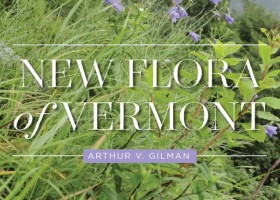
Comprehensive New Book Published on Vermont’s Plants
A comprehensive new manual of Vermont’s plants has been released by the New York Botanical Garden Press. The first reference of its kind since 1969, New Flora of Vermont was written by botanist Arthur Gilman of Marshfield, Vermont.

Sharing (data) is caring: VCE and open data
We here at VCE think a lot about the value of sharing, and not just during the holidays. With the help of many, including our dedicated corps of citizen-scientists, we collect lots of information about the natural world and try to put it to good use. We do our best to make sure that our data, and the knowledge we gain from it, gets into the hands of the people that need it.
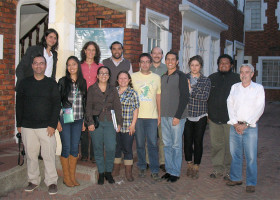
Globetrotting for Grassland Birds
Rosalind Renfrew reports on her two-month journey to South America, where she worked with VCE’s conservation partners to reverse the disturbing population decline among Bobolinks.
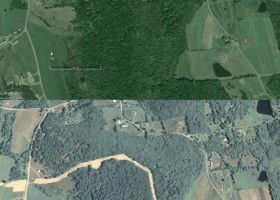
“Fracking” and Wildlife: Suds & Science on January 12
Natural gas extraction from shale formations in Appalachia, already a contentious political issue, also raises concerns about habitat loss and the fragmentation and degradation of forest and grassland wildlife habitats. VCE’s Jason Hill reports.
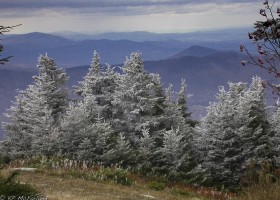
A Field Guide to December
Fear not, during these short days and long nights of December, we’re still finding plenty of life in the fading light. Once we pass the winter solstice more light will begin to creep back into our lives. Until then, here’s some wintry natural history.
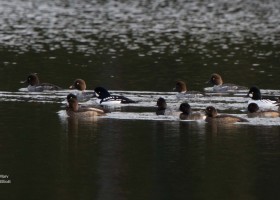
iNaturalist Vermont November Photo-observation of the Month
Congratulations to Marv Elliott for winning the November 2015 iNaturalist Vermont photo-observation of the month contest. His image of a Barrow’s Goldeneye among Common Goldeneyes, was the most popular photo-observation as measured by clicked ‘favs’.
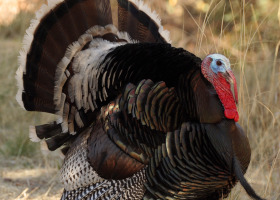
Wild Turkey Confidential: On Supper and Snoods
So how did you choose your turkey? By weight? Perhaps it is from a favorite farm? Or it could be a brand that you like? But if you were a female turkey, you’d be looking at the male’s snood.
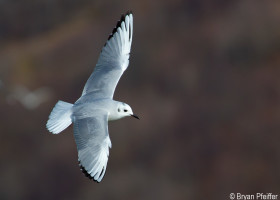
Gratitude for Gulls
Cosmopolitan, versatile and elegant in flight, Bonaparte’s Gull is a gull for people who may not like gulls. It slices the frigid air like a swallow. It drifts and swoops and swirls before me here on the Niagara River as the giant falls roar in the distance.
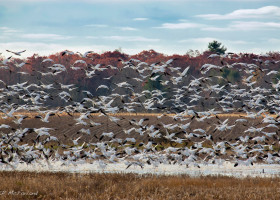
Outdoor Radio: A Blizzard of Geese
Biologists Sara Zahendra and Kent McFarland visit Dead Creek Wildlife Management Area, a destination spot for bird watchers, to see thousands of snow geese that flock there each fall. Listen to the show…
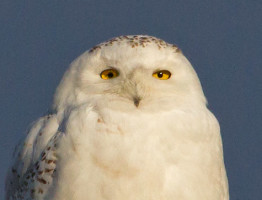
The Season’s First Snowy Owls
The forecast calls for snow — Snowy Owls and Snow Geese. Vermont’s first two Snowy Owls of the season have turned up in the past week.
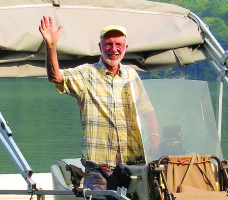
VCE Presents 2015 Julie Nicholson Citizen Scientist Award to a ‘Loonatic’
This year VCE honors Mike Korkuc with the Julie Nicholson Citizen Science Award for his years of dedication to loon conservation.
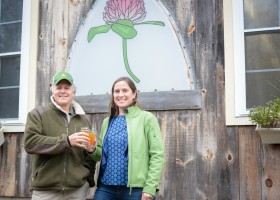
Outdoor Radio Spawns a Conservation Partnership
Inspired by a story on Outdoor Radio, Brocklebank Craft Brewing in Tunbridge is donating ten percent of sales proceeds from its Timber Rattler IPA to the Vermont Fish & Wildlife Department. The funds will support efforts to conserve Vermont’s imperiled timber rattlesnake population.
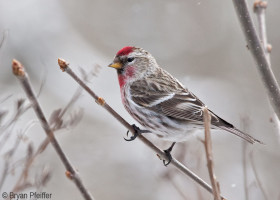
A Field Guide to November
“Stick Season,” as we call it here in New England, when the woods are gray and cold, has been anything but lifeless so far this fall. Here’s your Field Guide to November.

International Experts Convene for Bicknell’s Thrush
Twenty-one stakeholders of the International Bicknell’s Thrush Conservation Group convened recently in Woodstock, VT to launch a revision of the 2010 conservation action plan for this globally rare and vulnerable migratory songbird.
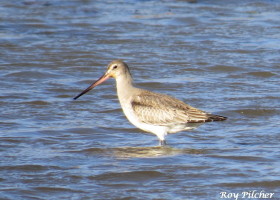
October iNaturalist Vermont Photo-observation of the Month
Congratulations to Roy Pilcher for winning the October 2015 iNaturalist Vermont photo-observation of the month contest. His image of a Hudsonian Godwit, was the most popular photo-observation as measured by clicked ‘favs’.
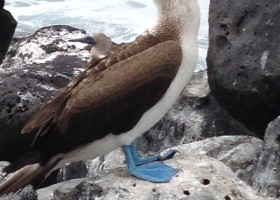
Where the Bobolink Meets the Booby
The Galapagos islands. Fodder for Darwin’s theory of natural selection, home to sea lions and iguanas so “tame” you can nearly shake hands, and the dream destination for wildlife-watchers who seek its famous specialized finches and the Blue-footed Booby. Add to the list: Bobolink.
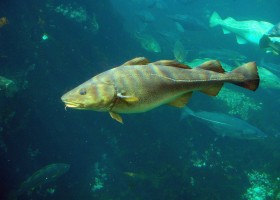
Warming waters contributed to the collapse of New England’s cod fishery
Even painful cuts to the fishery have failed to slow this rapid decline, surprising both fishers and fisheries managers. Now a report published this week in the journal Science links the cod collapse directly to rapid warming of ocean waters.
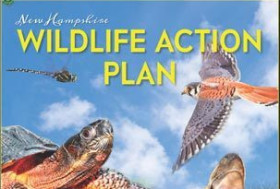
New Hampshire’s New 10-year Wildlife Action Plan Shows Gains and Challenges
Dozens of scientists and more than 1,000 concerned citizens contributed to the updated New Hampshire Wildlife Action Plan, a 10-year blueprint for conserving nongame wildlife throughout the state.
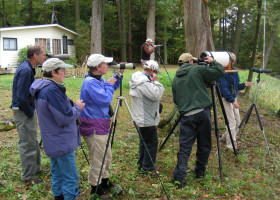
The Vermont – Santa Barbara Birding Challenge
Vermont and Santa Barbara County are squaring off in a friendly competition to find the highest number of species in 2015. With only two months to go, the race is close, with 264 species in VT, 261 in California. Vermonters birders are invited to make a pledge for eBird in this winner-take-all contest. The real goal is to get everyone out birding and reporting to Vermont eBird!
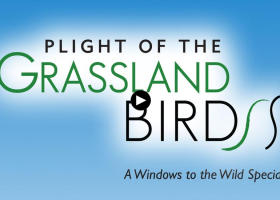
Watch Plight of the Grassland Birds
From the fields of New England and Canada to the vast plains of Montana to the deserts of Mexico, grassland…
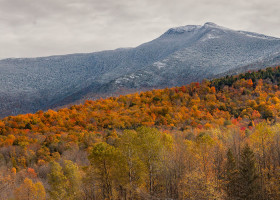
Outdoor Radio: The Phenology Of Fall
We all learned the basics of how and why leaves change color in the fall. But on this edition of Outdoor Radio, we take a deeper look at the chemistry of fall foliage and take leaf peeping to a whole new level.
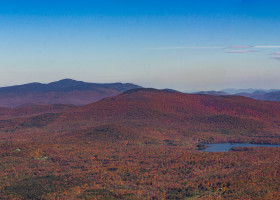
A Field Guide to October
October is a month of change. The leaves slip from green to gold. Then, suddenly, they all seem to drift to the ground. “Stick season” arrives. So here’s your field guide to moments that you might not otherwise notice during these few weeks that feature yellow-brown hills beneath a deep blue sky.
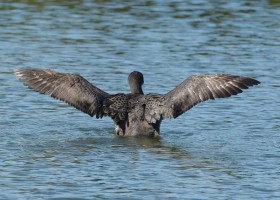
A Lost Loon’s Saga Ends Well on the Maine Coast
From a roadside in Vermont to oceanside in Maine, completes her “trilogy” of blog posts about the wayward Common Loon she discovered in August.
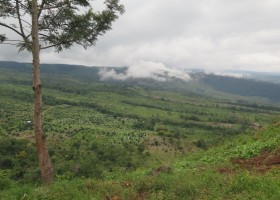
A tentative first step towards saving Sierra de Bahoruco
Sierra de Bahoruco National Park, in the southwest corner of the Dominican Republic, is arguably one of the world’s most…
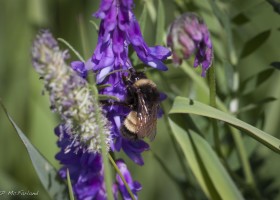
Vermont Fish & Wildlife Dept Announces Strategic Plan to Conserve Wildlife
MONTPELIER, Vt. – The Vermont Fish & Wildlife Department has released a draft Wildlife Action Plan that lays out the…
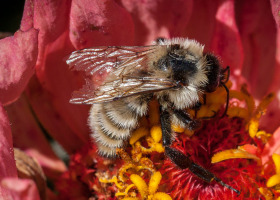
Sex, Drugs and Bees: plant chemistry and pollinators
Many plants rely on flower visits by pollinators such as bees in order to reproduce. When bees consume nectar and…
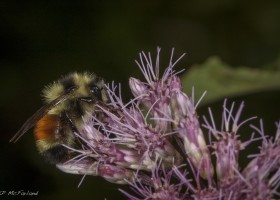
Long Live the Queen!
Each year in the bumble bee kingdom, only a queen will carry the colony’s torch through winter to produce the next generation. Everyone else – workers, drones, and the old queen – dies with the onset of fall frost.
